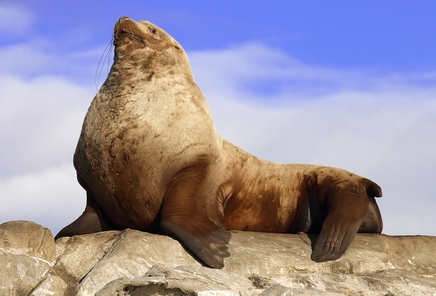Endangered Sea Lions and Sharks: Not a Good Mix
According to a new study, pacific sleeper sharks are preying on the endangered Stellar sea lions in the Gulf of Alaska. Out of the 36 sea lions implanted with transmitters, 17 have already been killed. So, how do endangered species get protection when their predators are natural?
The decade-long study was conducted by Newport’s Hatfield Marine Science Center and Oregon State University. As part of the teams’ research, 36 juvenile sea lions were implanted with special transmitters. Of those sea lions, 17 have been killed – 15 of which the transmitters reported the sea lions died by predation.
 The transmitters also gave evidence that the predators were sleeper sharks, which usually only feed on smaller fish. There are thousands of those sharks in the waters the sea lions live it. With such large numbers, the limited population of the Stellar sea lions could quickly decrease.
The transmitters also gave evidence that the predators were sleeper sharks, which usually only feed on smaller fish. There are thousands of those sharks in the waters the sea lions live it. With such large numbers, the limited population of the Stellar sea lions could quickly decrease.
“If sleeper sharks are involved in predation, it creates something of a dilemma,” said Markus Horning of the Marine Mammal Institute at OSU and the Hatfield. “By limiting fishing, however, you may be reducing the bycatch that helps keep a possible limit on a potential predator of the sea lions. The implication could be profound, and the net effect of such management actions could be the opposite of what was intended.”
So, what do you think can be done to help protect these sea lions from a natural predator? Should there be a fishing season just for the sharks? Should some of the sea lions be moved to a different location?
Posted by Lindsay Page on Nov 03, 2014